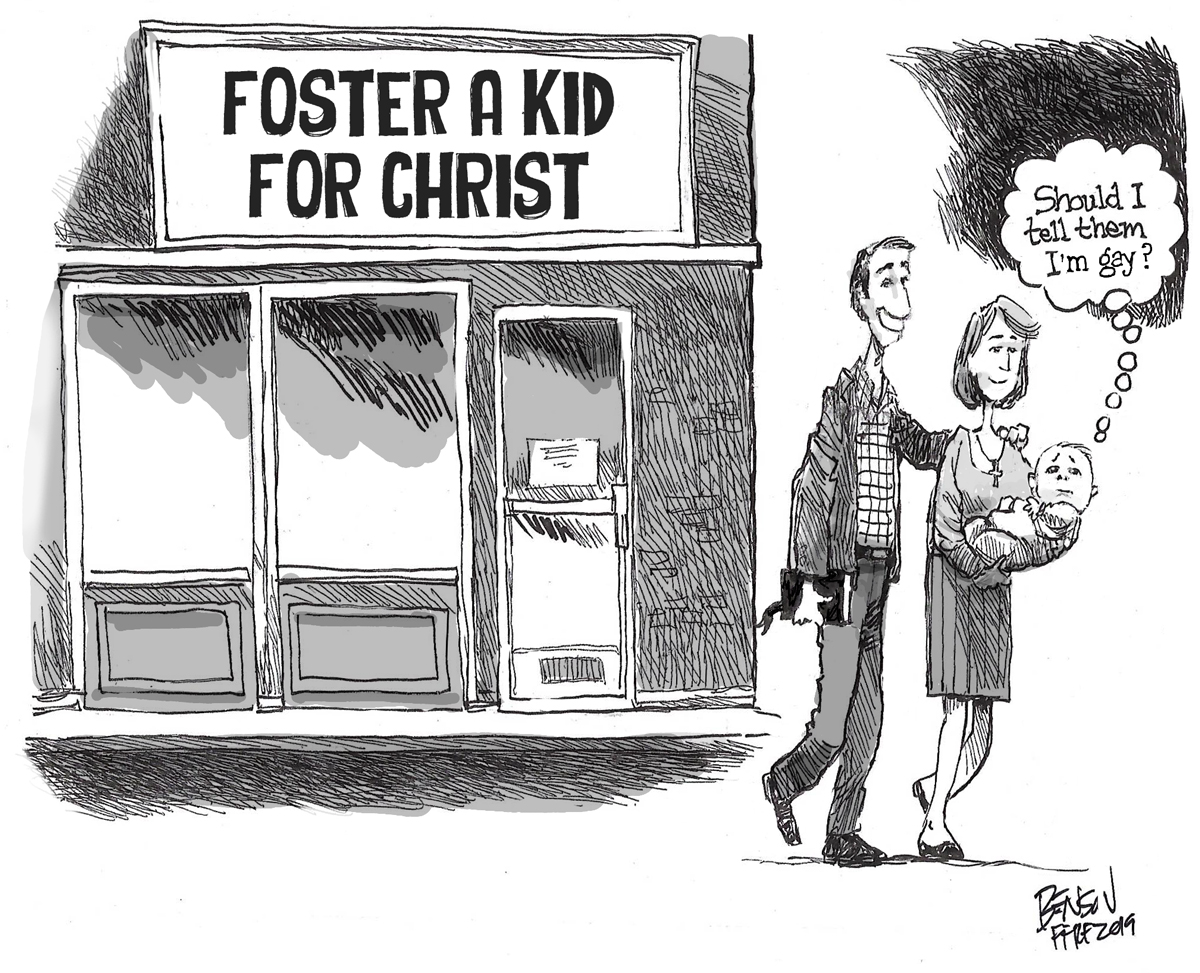
The Freedom From Religion Foundation has filed an amicus brief before the U.S. Supreme Court strongly opposing a Catholic agency’s contention that it can discriminate as a government contractor against same-sex couples for foster care.
The U.S. Supreme Court agreed to hear an appeal by Catholic Social Services after the city of Philadelphia stopped contracting with it for foster care placement when it learned the Catholic group barred same-sex couples in violation of the city’s anti-discrimination policy. Lower federal courts ruled against Catholic Social Services in the case, Fulton v. City of Philadelphia, with the 3rd U.S. Circuit Court of Appeals stating that “religious belief will not excuse compliance with general civil rights laws.”
The Supreme Court has scheduled arguments for Nov. 4 in the closely watched case.
“In practice, CSS has instituted a policy of ‘religious liberty for me, but not for thee,’” FFRF notes in its brief. “When the party to whom a rule applies decides whether the rule applies, there is no rule.”
The Catholic Social Services’ assertion that it is a private entity in this context with “a right to discriminate” is deeply flawed, FFRF contends. It disregards the nature of the foster care system, and the fact that the government contracted with the agency to place children in homes. “If CSS is permitted to discriminate in this case, the rights of religious minorities and the nonreligious would be put in peril,” FFRF observes.
The consequences if Catholic Social Services wins its case would be far-reaching. Religious Right legal groups are seeking to overturn an important precedent, Employment Division v. Smith, a 1990 case in which the Supreme Court ruled that religion does not exempt a person from neutral local, state and federal laws. The Smith case upheld the denial of unemployment benefits to two prison guards who were fired for using peyote, an illegal substance. Then-Justice Antonin Scalia, in affirming the Smith decision, noted that laws may not interfere with mere religious belief, but may interfere with actions. Otherwise, he warned, every citizen professing his religious belief is superior to the law would “become a law unto himself.”
Catholic Social Services argues that it must be allowed to discriminate because its contract with the government involves religious activities, FFRF’s brief states. “This absurd position becomes a nationwide nightmare if the court, in the aftermath of Espinoza, overturns Smith and finds that program regulations simply do not apply to religious organizations if the organization says so.”
“Any readily available exemptions from the laws governing these programs for religious groups would put them in a favored position and create an imbalance in constitutional rights,” the brief summarizes. “In keeping with bedrock principles underlying the Free Exercise Clause and the Establishment Clause, the appropriate standard in this case is religious neutrality.”
FFRF’s brief warns the court of the repercussions of such a judgment: “If the court ignores neutrality principles in favor of religious favoritism, it will be eviscerating religious liberty and harming persons who do not practice within the favored religious groups.”
The brief concludes that the Supreme Court should rule against Catholic Social Services because “it is antithetical to the concept of religious liberty to allow a government contractor that serves the public to discriminate on the basis of religion.”
The counsel of record for the brief is FFRF Senior Counsel Patrick Elliott. FFRF gives a special thanks to law student and FFRF intern Kat Grant for assisting with drafting the brief. Other organizations that have joined in the brief are the Center For Inquiry and American Humanist Association.
The Freedom From Religion Foundation is the largest national association of freethinkers, representing atheists, agnostics, and others who form their opinions about religion based on reason, rather than faith, tradition, or authority. Founded nationally in 1978 as a 501(c)(3) nonprofit, FFRF has more than 32,000 members, including members in every state and the District of Columbia.

